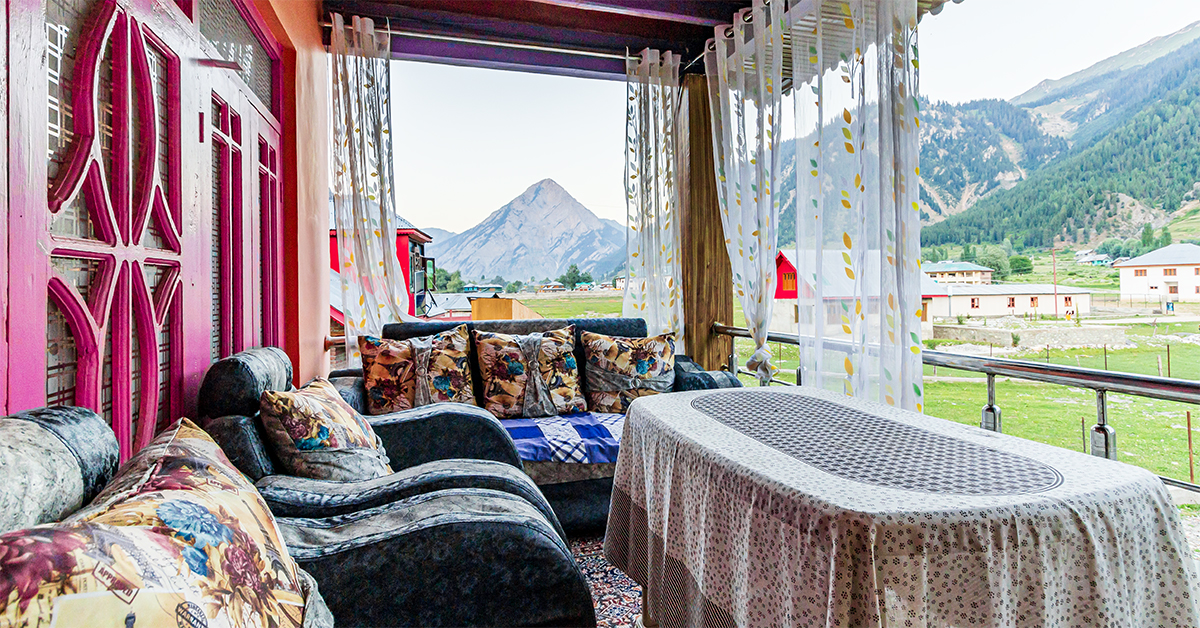
1. What Is a Homestay ?
A homestay is when travelers or a tourist stay in someone else’s home, offering a unique and immersive experience. Unlike hotels, or resorts or private Airbnbs, homestays provide a genuine connection with local culture and traditions.
Here’s what you need to know about a home stay.
Advantages of Homestays:
- Cultural Immersion: Live like a local, learn customs, and taste authentic home-cooked meals.This is an unique experience for a traveler exploring the location.
- Personalized Experience: Interact with your hosts, ask questions, and gain insights into the destination he is in and also the nearby ones.
- Cost-Effective: Often more affordable than hotels.They are cheap accommodation and often fit’s in to the budget travelers requirement.
- Lower Carbon Footprint: Homestays are Eco-friendly compared to large hotels because of energy conservation and many a time harnessing nature.
Disadvantages of Homestays:
- Privacy and Comfort: Homestays may lack the same level of privacy and amenities as hotels. But one can specify request the hosts to provide minimum accepted level of privacy.
- Rules and Restrictions: Some hosts impose curfews or work requirements.It’s important to note and follow.
- Varying Quality: Not all homestays offer the same level of comfort or cleanliness though efforts are now being made to standardize base level of offerings.
2. How to Select a Homestay:
When choosing a homestay, consider the following:
Verification and Precautions:
- Read Reviews: Check online reviews from previous guests.
- Host Profile: Look for detailed host profiles and photos on public sites like Google map
- Contact the Host: Communicate directly with the host to ask questions.
- Safety Measures: Ensure the property complies with safety standards.
3. Verifying Authenticity Using Google Maps:
- Google Maps: Search for the homestay’s address on Google Maps. Verify its location, surroundings, and proximity to attractions and entry exit points.
- Street View: Use Street View image or 360 degree video , if available,to virtually explore the the home stay facility and also the neighborhood and assess authenticity.
4. Booking, Corresponding, and Cancellation:
- Booking: Visit the homestay’s website or booking platforms (e.g., indiacom.com).
- Correspondence: Communicate with the host over phone,via email or Whatsapp messaging platforms. Discuss check-in details, dietary preferences, and any special requests.
- Cancellation: If needed, follow the cancellation policy provided during booking. Cancel through the platform or directly with the host.
5. Handling Complaints and Grievances:
- Direct Communication: Address issues directly with the host. Be polite and specific about concerns.
- Escalation: If unresolved, escalate to the platform which helped in the booking and if there is a provision the regulatory authority like state Tourism Boards which might have given license to the homestay owner to operate.
- Feedback: Provide feedback after your stay. Honest reviews help future travelers.
6. Additional Tips for Travelers:
- Local Etiquette: Respect local customs and norms.
- Learn Basic Phrases: Learn a few phrases in the local language.
- Flexible Attitude: Embrace unexpected experiences.
Remember, a homestay isn’t just a place to sleep; it’s an opportunity to connect with people and create lasting memories. Happy travels! 🌍🏡✨



